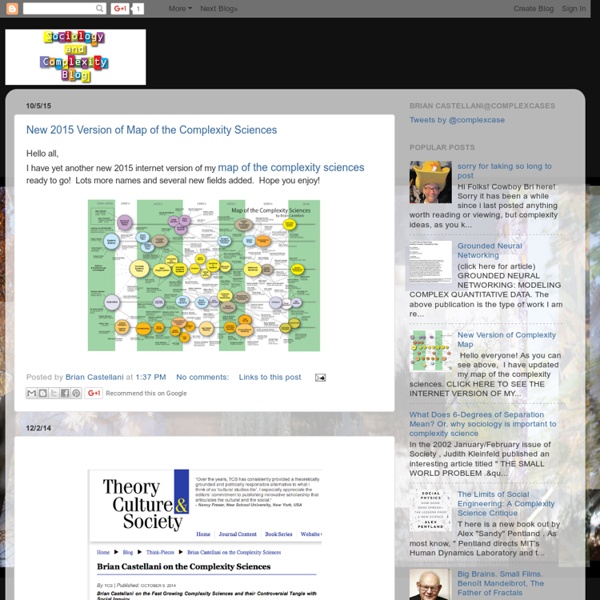



Donella Meadows Origem: Wikipédia, a enciclopédia livre. Donella H. "Dana" Meadows (Illinois - EUA, 13 de Março de 1941 - Hanover, New Hampshire - 20 de fevereiro de 2001)[1] foi uma cientista ambiental, professora e escritora co-autora do livro "Os limites do crescimento", traduzido para mais de 28 idiomas, e tendo sido um best-seller mundial, influenciando o pensamento científico e social desde então.[2] Licenciou-se em química pelo Carleton College em 1963, e em 1968 obteve o doutoramento em Biofísica pela Universidade de Harvard, tendo mais tarde entrado no MIT como investigadora, onde trabalhou em estreita colaboração com Jay W. Forrester, o criador da dinâmica de sistemas, bem como o princípio de armazenamento de dados magnéticos para computadores. Desde 1972 que lecionou na Faculdade de Dartmouth, durante 29 anos.[3] Publicações[editar | editar código-fonte] Donella H. Referências Ligações externas[editar | editar código-fonte] Instituto de Sustentabilidade Ver também[editar | editar código-fonte]
Center for Complexity in Health at the Robert S. Morrison Health Sciences Building, Kent State University Everyday Sociology Blog By Karen Sternheimer As a self-starter, I like self-help books, and have read or listened to number of audio books in the genre. I have listened to many books on discovering one’s passions and creativity, on personal finance, relationships, career building, and those promoting emotional well-being. But even while listening, on occasion I am reminded of the limits of self-help books. Downward causation In philosophy, downward causation is a causal relationship from higher levels of a system to lower-level parts of that system: for example, mental events acting to cause physical events,[1] The term was originally coined in 1974 by the philosopher and social scientist Donald T. Campbell.[2][1] See also[edit] References[edit] Further reading[edit] Campbell, Donald T. (1974) "Downward causation in hierarchically organised biological systems".
Centre for Research in Social Simulation - CRESS The Centre for Research in Social Simulation (CRESS), based in the Department of Sociology in the Faculty of Arts and Human Sciences at the University of Surrey, is a multidisciplinary centre bringing together the social sciences, software engineering and agent-based computing to promote and support the use of social simulation in research in the human sciences. There is growing interest in using computer simulation to explore issues in the social sciences. Simulation is a novel research method in most parts of the social sciences, including sociology, political science, economics, anthropology, geography, archaeology and linguistics. It can also be the inspiration for new, process-oriented theories of society. If you would like more information on CRESS research and activities, or to learn more about collaboration with CRESS, please email This e-mail address is being protected from spambots. You need JavaScript enabled to view it us.
UnderstandingSociety International Society for the Systems Sciences The International Society for the Systems Sciences (ISSS) is among the first and oldest organizations devoted to interdisciplinary inquiry into the nature of complex systems, and remains perhaps the most broadly inclusive. The Society was initially conceived in 1954 at the Stanford Center for Advanced Study in the Behavioral Sciences by Ludwig von Bertalanffy, Kenneth Boulding, Ralph Gerard, and Anatol Rapoport. In collaboration with James Grier Miller, it was formally established as an affiliate of the American Association for the Advancement of Science in 1956. Originally founded as the Society for General Systems Research, the society adopted its current name in 1988 to reflect its broadening scope. The initial purpose of the society was "to encourage the development of theoretical systems which are applicable to more than one of the traditional departments of knowledge," with the following principal aims:
Complex Systems Society : HomePage Photos of the PhD Session at Vienna Vienna , September 12-16, 2011 As one of the most important annual events in Complex Systems Science, the conference aims to provide a broad forum for the diverse communities engaged in Complex Systems research, ranging from the Life Sciences to Physics, from Computer Science to Social Science, from Mathematics to Origin of Life, and from Networks to Policy Implications. The ECCS'11 will feature a fine selection of inspiring keynote speakers , satellite conferences , awards , and panel discussions on a wide variety of hot topics. CSS has issued a new version of its community explorer with enhanced information about its members. Call for Abstracts - Deadline EMay 15th The theme of the satellite is getting research students to present their ideas with a view to elucidating how they affect society as a whole, and to speculate how, within 5-10 years, their complex systems approach may have helped to structure our society for the better.
Teaching Muslim Immigration and Integration in France Recently, the issue of Muslims living in and emigrating to various parts of Europe has been receiving much attention as difficulties with xenophobia and racism are being juxtaposed with so-called problems arising with illegal immigration. In France, particularly, debates on these issues dominate both the public and the private sphere. Concerns around Islamophobia have become very unique and specific to the French context and are now the source of much contemplation and analysis. In France, the question of whether it is possible to be both French and Muslim remains highly contested. Learning Outcomes After this lesson, students should: Readings Albahari, Maurizio. 2015. Asad, Talal. 2002. Bowen, John R. 2007. _____. 2011. Brouard, Sylvain, and Triberj, Vincent. 2011. Cooper, Frederick. 2009. Fetzer, Joel S., and Christopher Soper. 2005. Keaton, Trica Danielle. 2006. Mbembe, Achille. 2009. _____. 2009. Padgen, Anthony. 2002. Raissiguier, Catherine. 2010. Ramadan, Tariq. 1999. _____. 2013.